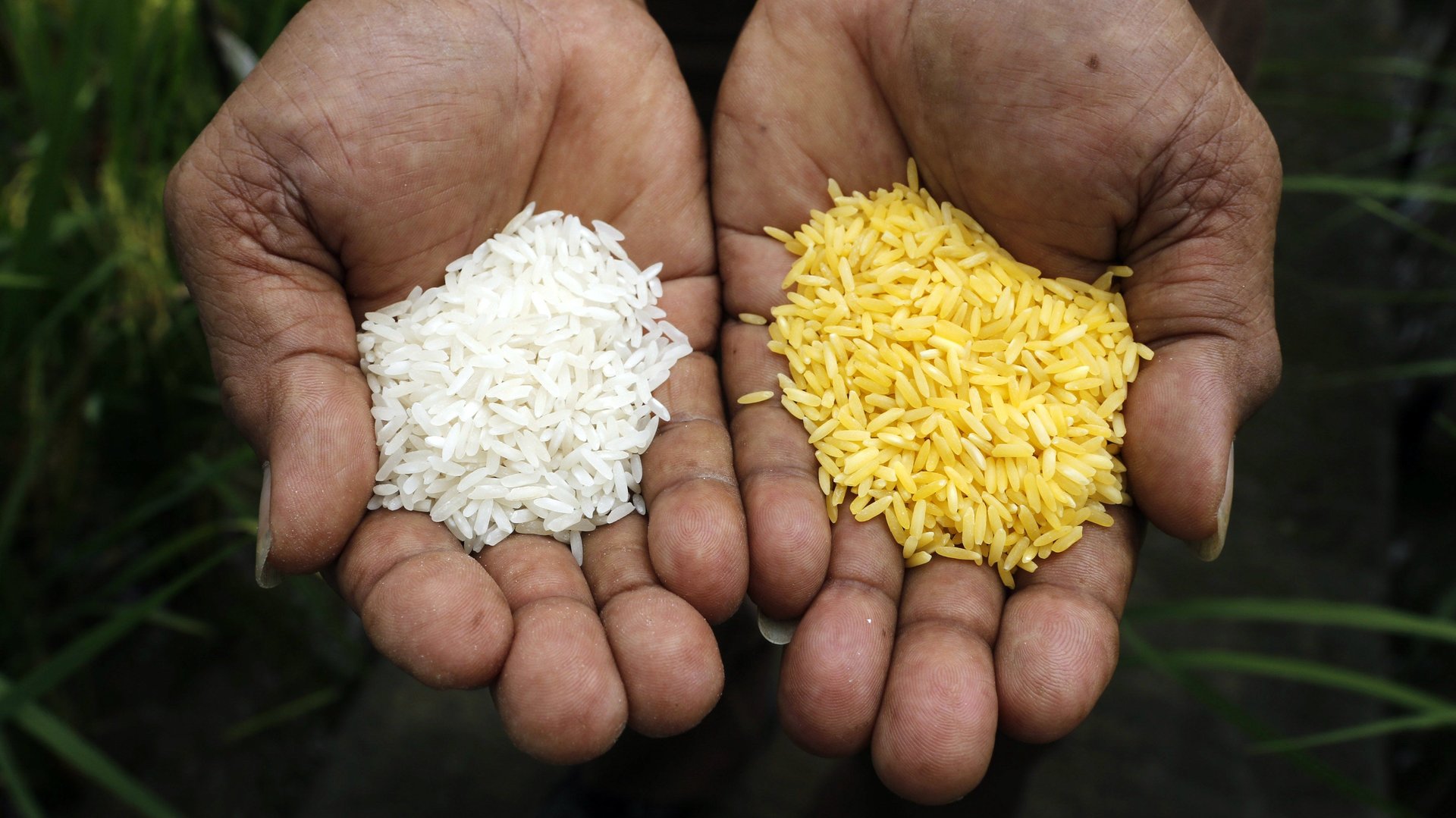Golden Rice—a star among GMO foods—has a major study retracted
Golden Rice, often touted as a shining example of the benefits of genetic engineering, might not be as golden as originally thought.


Golden Rice, often touted as a shining example of the benefits of genetic engineering, might not be as golden as originally thought.
The American Journal of Clinical Nutrition has issued a retraction to a 2012 paper on Golden Rice because of insufficient evidence of consent from the parents of the children involved in the study, The Ecologist reports. And, perhaps more significantly, the retraction provides the opportunity to re-raise another question regarding the validity of the AJCN trial: The diets fed to the children in the trial were, according to critics, unrealistically high in fat. (Because vitamin A, the primary benefit of Golden Rice, is fat soluble, the body needs fat to absorb it.)
Golden Rice, first introduced in a 2000 study in Science, is genetically engineered rice that’s extra high in beta-carotene, a precursor to vitamin A. It was developed as a potential solution to vitamin A deficiencies in children around the world, especially those in highly populated, impoverished areas. In 2005, a paper in Nature Biotechnology introduced Golden Rice 2, which had 23-times more beta-carotene than its predecessor. In the 2012 American Journal of Clinical Nutrition study, the beta-carotene in Golden Rice 2 (now just Golden Rice) was found to be as effective as pure beta-carotene in a capsule, and even more effective than spinach in providing children with vitamin A. Golden Rice was the golden child of pro-GMO interests.
Even though the private sector was involved in the development of Golden Rice, and companies including Syngenta and Monsanto have proprietary rights in it, they emphasize that they do not make money from the marketing or sale of Golden Rice, and the efforts are coordinated not by them, but by the International Rice Research Institute.
Golden Rice’s real value to these companies is in publicity. Though there have been protests about its use from environmental groups like Greenpeace, the nutritional qualities of Golden Rice have overshadowed the complaints.
All that may now come into question if the study’s validity is challenged beyond the consent issue. The children in the trial ate meals that were 20% fat by calories, and included both pork and egg—foods not usually available in large quantities, if at all, to the target population of poor children. Without it, much of the vitamin will go to waste. (The AJCN did not include this critique in its decision to retract the paper.)
Syngenta did not immediately respond to request for comment. Monsanto directed inquiries to industry group BIO, which declined to comment.